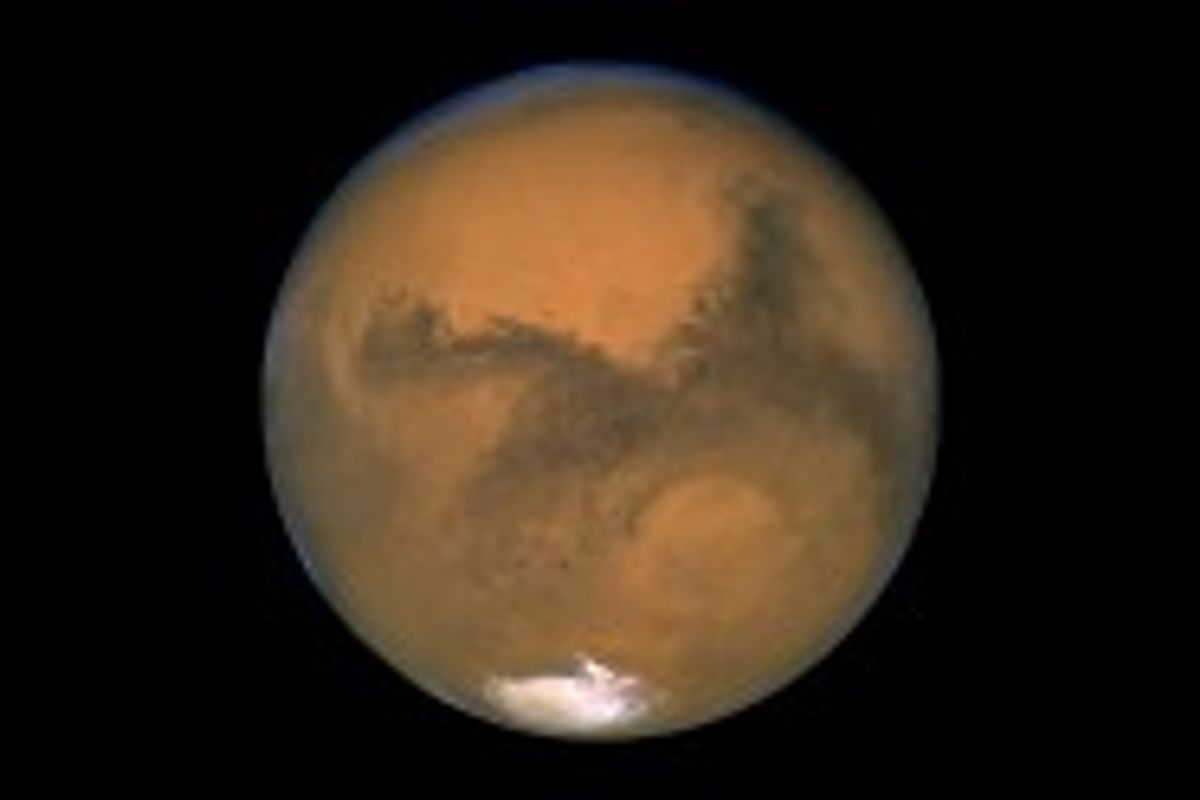NASA may be facing a flatlined budget, but that isn't stopping the agency from gunning for the stars. This morning, William Gerstenmaier, a NASA administrator, presented the agency's goals before the Senate Subcommittee for Science and Space.
Spoiler alert, NASA's future plans include redirecting an asteroid into the moon's orbit and eventually sending a manned mission Mars. If NASA is sticking to a time frame announced in March, the agency is aiming to blast a person to Mars in the 2030s.
"Our architecture is designed for long-term human exploration of our solar system, including the goal of human missions to Mars," said Gerstenmaier, who is part of the Human Exploration and Operations division.
The hearing was called "From Here to Mars," and the possible missions highlighted were pretty thrilling. One of them includes sending a manned spacecraft to a near-earth asteroid, and then using robotic technology to knock the asteroid (or a boulder from it) into the moon's orbit. From there they'll be able to collect and study samples of the asteroid. The budget has this mission on target to happen by 2025.
According to the Huffington Post, Gertenmaier is very excited about the future asteroid mission. Such a mission he contended could get the public excited about space exploration.
"We're going to grab a piece of the solar system, we're going to deflect it around the moon and insert it into a distant retrograde orbit around the moon where our crews can go visit," he told the subcommittee. "To think we're moving a piece of the solar system for our use that will allow us to learn skills and techniques that we need to push the human presence into the solar system, that's a pretty awe-inspiring statement."
Of course the sad road block to all of this "awe-inspiring" space exploration is NASA's budget. The 2015 budget was stagnant, and President Obama has only extended the International Space Station through 2024.
Senator Bill Nelson (D-Fla.) also reminded the committee that more sequester cuts are on their way. "Sequester is part of the budget for the next eight years, unless we can change it. There are some of us in bipartisan discussions right now that are trying to change that," Nelson told the hearing. "But limited funding is a reality over the course of the next several years."
Though Gerstenmaier confessed that budget cuts, and the inability to fund some projects, can leave people "jaded," he remains optimistic. He said we have to ignore the "buyer's regret" and focus on what on "what this country can do, and not be ashamed of what we do."
In his statement Gerstenmaire reminded the committee how important NASA and future space exploration are to the country. "This long-term effort will expand the sphere of human life and activity, and draw upon the pioneering spirit and ingenuity in the face of the seemingly impossible that have helped make the U.S. the exceptional nation that it is."
h/t Huffington Post, U.S. Senate Subcommittee on Science and Space

Shares